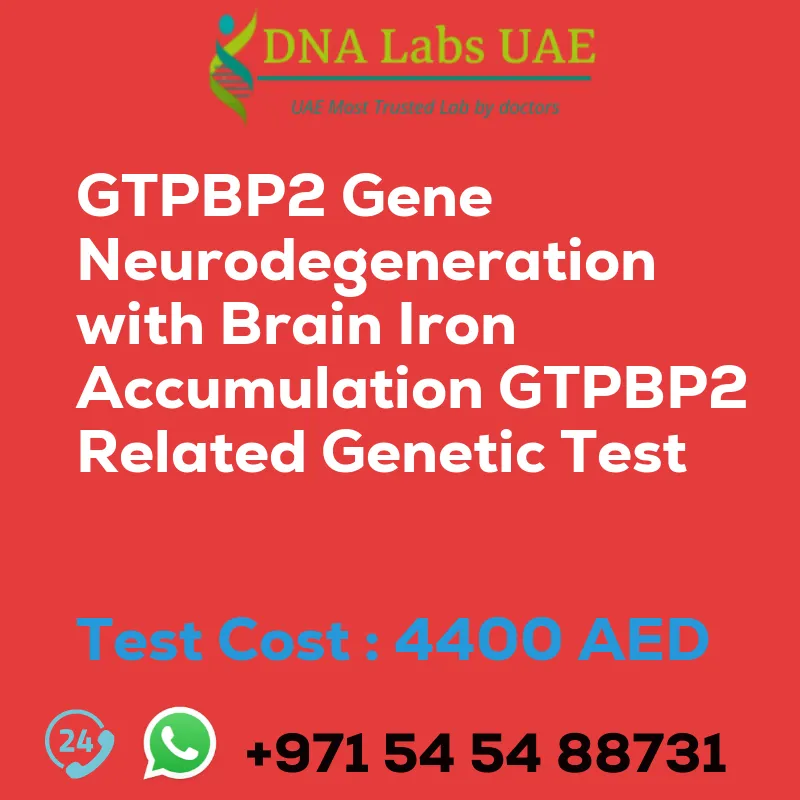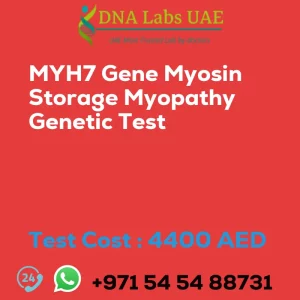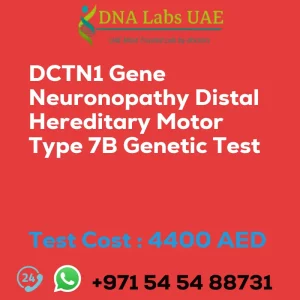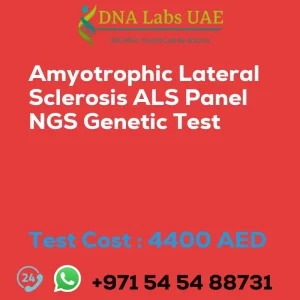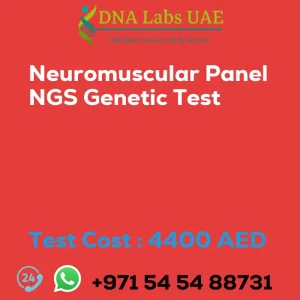GTPBP2 Gene Neurodegeneration with brain iron accumulation – Genetic Test
At DNA Labs UAE, we offer a comprehensive genetic test for GTPBP2 Gene Neurodegeneration with brain iron accumulation. This test can help diagnose and provide valuable information for individuals affected by this condition.
Test Name: GTPBP2 Gene Neurodegeneration with brain iron accumulation GTPBP2 related Genetic Test
Components: NGS Technology
Price: 4400.0 AED
Sample Condition: Blood or Extracted DNA or One drop Blood on FTA Card
Report Delivery: 3 to 4 Weeks
Test Type: Neurological Disorders
Doctor: Neurologist
Test Department: Genetics
Pre Test Information
Prior to the genetic test, it is important to provide the clinical history of the patient who is going for GTPBP2 Gene Neurodegeneration with brain iron accumulation test. Additionally, a genetic counseling session may be conducted to draw a pedigree chart of family members affected with GTPBP2 Gene Neurodegeneration with brain iron accumulation.
Test Details
Neurodegeneration with brain iron accumulation (NBIA) is a group of inherited neurodegenerative disorders characterized by the abnormal accumulation of iron in the brain. One of the genes associated with NBIA is the GTPBP2 gene. The GTPBP2 gene provides instructions for making a protein called GTP-binding protein 2. This protein is involved in several cellular processes, including the regulation of iron metabolism.
Mutations in the GTPBP2 gene can disrupt the normal function of the protein, leading to the accumulation of iron in the brain and subsequent neurodegeneration. Our genetic test using next-generation sequencing (NGS) technology can identify mutations in the GTPBP2 gene. This involves sequencing the DNA of an individual to look for changes or variations in the gene that may be associated with NBIA.
NGS allows for the simultaneous analysis of multiple genes, making it an efficient method for genetic testing. Identifying mutations in the GTPBP2 gene through NGS can help confirm a diagnosis of NBIA and provide valuable information for genetic counseling and family planning. It can also aid in the development of targeted therapies or interventions for individuals with GTPBP2-related NBIA.
| Test Name | GTPBP2 Gene Neurodegeneration with brain iron accumulation GTPBP2 related Genetic Test |
|---|---|
| Components | |
| Price | 4400.0 AED |
| Sample Condition | Blood or Extracted DNA or One drop Blood on FTA Card o |
| Report Delivery | 3 to 4 Weeks |
| Method | NGS Technology |
| Test type | Neurological Disorders |
| Doctor | Neurologist |
| Test Department: | Genetics |
| Pre Test Information | Clinical History of Patient who is going for GTPBP2 Gene Neurodegeneration with brain iron accumulation, GTPBP2 related NGS Genetic DNA Test A Genetic Counselling session to draw a pedigree chart of family members affected with GTPBP2 Gene Neurodegeneration with brain iron accumulation, GTPBP2 related |
| Test Details |
Neurodegeneration with brain iron accumulation (NBIA) is a group of inherited neurodegenerative disorders characterized by the abnormal accumulation of iron in the brain. One of the genes associated with NBIA is the GTPBP2 gene. The GTPBP2 gene provides instructions for making a protein called GTP-binding protein 2. This protein is involved in several cellular processes, including the regulation of iron metabolism. Mutations in the GTPBP2 gene can disrupt the normal function of the protein, leading to the accumulation of iron in the brain and subsequent neurodegeneration. A genetic test using next-generation sequencing (NGS) can be performed to identify mutations in the GTPBP2 gene. This test involves sequencing the DNA of an individual to look for changes or variations in the gene that may be associated with NBIA. NGS allows for the simultaneous analysis of multiple genes, making it an efficient method for genetic testing. Identifying mutations in the GTPBP2 gene through NGS can help confirm a diagnosis of NBIA and provide valuable information for genetic counseling and family planning. It can also aid in the development of targeted therapies or interventions for individuals with GTPBP2-related NBIA. |

